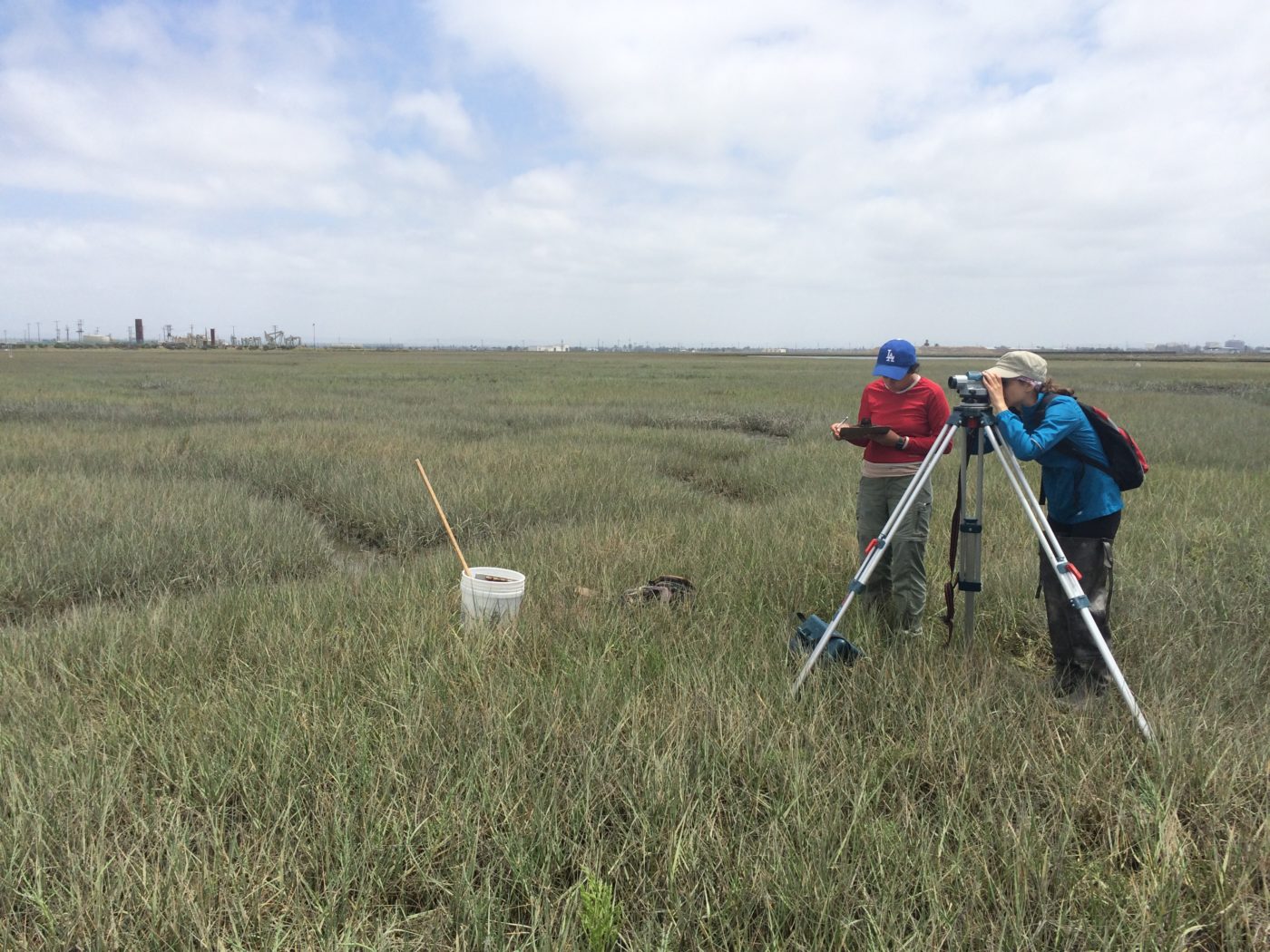
Lia Protopapadakis Flynn
Institute of the Environment and Sustainability
Lia Protopapadakis Flynn is an ESE alum.
She served in residency with the U.S. Army Corps of Engineers (Corps) Regulatory Division, Los Angeles District. The Corps Regulatory Division has arguably the broadest authority of any federal agency to regulate private activities in ocean waters. However, this authority is often overshadowed by the Corps’ permitting program for discharges of dredged or fill material in wetlands. As a result, very little is known about the impacts permitted activities have on marine habitats, whether compensatory mitigation is occurring and is successful, or even the basic patterns of permitting in marine habitats. Lia’s dissertation seeks to answer these questions at three levels: 1) nationwide in comparison to the Corps permitting in wetlands and freshwater systems, 2) for eelgrass in the Southern California Bight, and 3) California-wide in relation to the California Coastal Commission’s recent sea level rise adaptation policy. As a surfer, SCUBA diver, kayaker, and stand up paddleboarder, Lia is an all around waterwoman, with a passion for the ocean and facing challenges head-on.
Lia Protopapadakis came to the Environmental Science and Engineering program to enhance her analytical and technical skills and to forward a career reducing risks for coastal habitat and infrastructure by applying soft engineering solutions. She has an M.E.M. in Coastal Environmental Management from Duke University and a B.S. in Biology from USC (but don’t hold that against her!)
Prior to starting her doctoral degree, Lia worked for The Bay Foundation/Santa Monica Bay Restoration Foundation for over eight years. There she restored kelp forests, conducted research for fisheries management, and developed sustainable local seafood. She also staffed the Santa Monica Bay Restoration Commission’s Technical Advisory Committee and served on two stakeholder advisory groups for the California Department of Fish and Wildlife: the Marine Life Protection Act – South Coast Regional Stakeholder Group and the Lobster Advisory Committee. Her broad skill-set includes conducting shipboard oceanographic research in the waters of the tropical Pacific, tropical Atlantic, and Antarctica; performing underwater surveys as a scientific diver; collecting spatial data from small fixed-wing aircraft; evaluating ecosystem-based management of open-water fisheries; and developing ocean policy and legislation in the U.S. Congress as a Knauss Sea Grant Fellow. She is doing her residency with the U.S. Army Corps of Engineers Regulatory Division in Los Angeles where she is looking at the impacts of the Corps permitting program in ocean and coastal waters and how to “green” armored shorelines in an urban setting. She is published in Ecosphere and Fisheries Management and Ecology.

